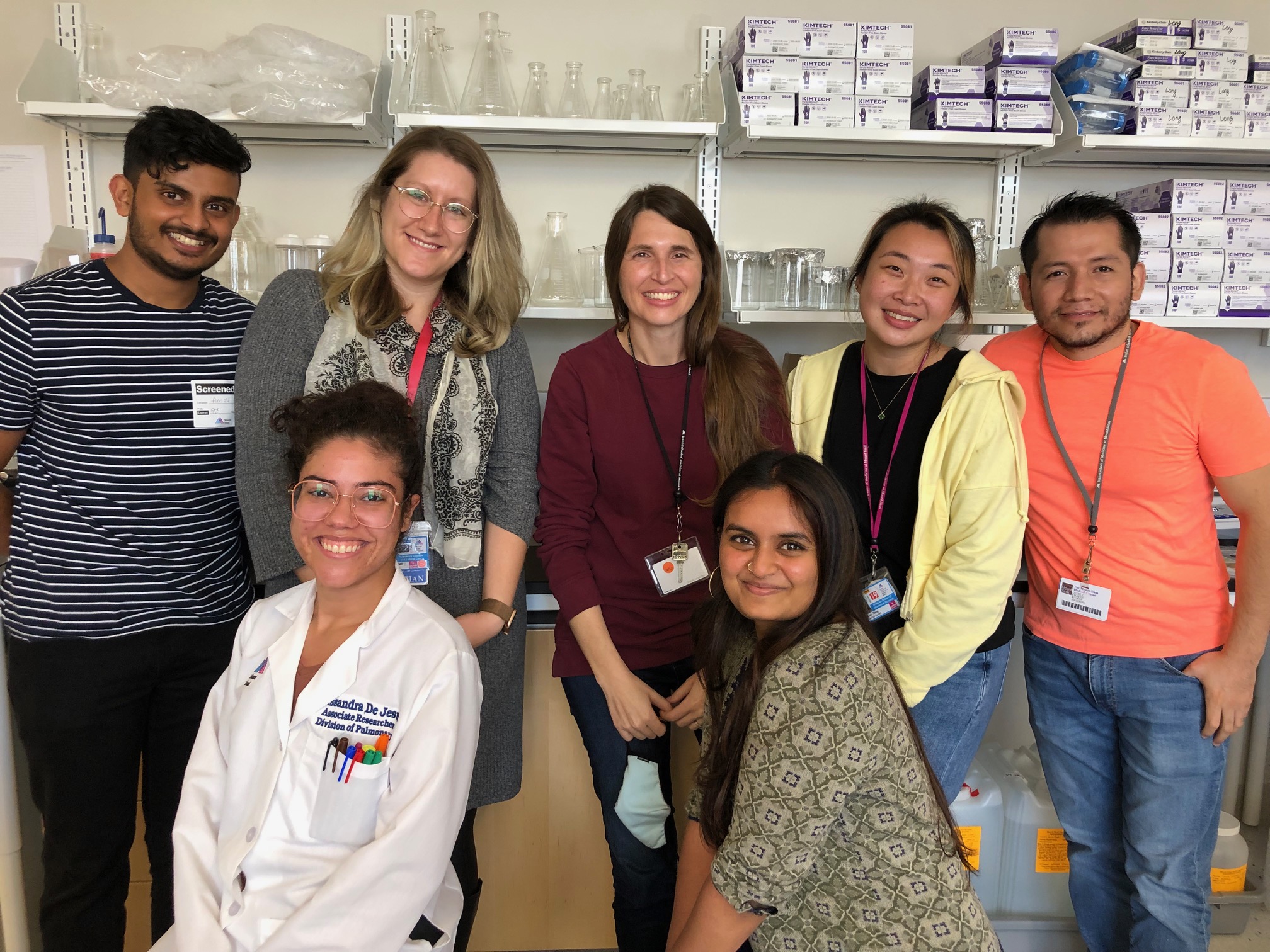-
ATS WHO’S WHO – JAIME HOOK
- Your full title as you’d like it to appear.
Assistant Professor
Global Health and Emerging Pathogens Institute
Departments of Medicine and Microbiology
Icahn School of Medicine at Mount Sinai
New York
- Three statements about you – two true, one false.
- My dad was the Fire Chief in my hometown. Before that, he was Fire Captain Hook.
- I’m afraid of my own basement and refuse to go downstairs when it’s dark.
- I was a ranked junior golfer in Wisconsin.
- Give us your ‘elevator pitch’ biography.
I grew up in Milwaukee and went to college and medical school at the University of Wisconsin in Madison. I then moved to New York City where I did my residency, fellowship, and postdoctoral research training at Columbia University Medical Center. I had the good luck of working in Dr. Jahar Bhattacharya’s lab for my postdoctoral training in lung biology. After finishing that training, I moved to the Icahn School of Medicine at Mount Sinai in 2019 to start my independent research program. I now have six fantastic people in my group, and our work focuses on basic mechanisms of lung alveolar damage and repair in response to inhaled
 influenza and staphylococci. I see patients a few weeks each year as an attending physician on the inpatient pulmonary consult service.
influenza and staphylococci. I see patients a few weeks each year as an attending physician on the inpatient pulmonary consult service.- What would you tell yourself as an Early Career Professional?
Since I’m still an Early Career Professional, I’ll share some advice that others gave to me. (1) Get involved in the ATS. I’ve been incredibly fortunate to meet a number of people who have supported and sponsored me in different ways. For example – Clemente Britto suggested I join the RCMB Early Career Professionals Working Group and advocated for me to serve as the Working Group Chair. Josh Englert gave me helpful advice when I was looking for a faculty job. Karen Ridge and Rachel Zemans supported my symposium proposal for Virtual ATS 2021. Chris Waters gave me feedback on a grant application. The RCMB leadership picked me to receive a Joe Rae Wright Award. Lynn Schnapp included me in this “Who’s Who” series. I could go on and on. I’m very grateful for the friendships I’ve made and the help I’ve received through this organization. (2) My Division Chief at Columbia, Neil Schluger, told me to always root my research in an important clinical problem. This advice might seem obvious, but I find myself returning to it every time I design a new project or write a grant. (3) Read the book Deep Work, and then read it again. The wonderful Patty Lee gave this book to me a couple years ago, and it completely changed how I manage my time. It increased my productivity in a sustainable way and helped me focus on what’s important in science.
- If you weren’t in medicine, and were in a different industry altogether, what would you be?
Being a physician-scientist with my own lab is my dream job, so right now I’m just hoping to hang on to this for as long as I can. But if I had to do something else, I’d work in government to try to improve the foster care and other public welfare systems. As long as we’re dreaming, I’d love to get a chance to drive a Ferrari. I know that’s not a job but it would be awesome.
- What is your favorite way to spend a day off?
If that day off is on a weekend, then I like to spend it with my family. We do pretty normal stuff like play sports, take walks, and visit grandparents. If I have a day off on a weekday, then I like to make a pot of coffee and get lost in a good book – especially a biography. My favorite is Robert Caro’s (unfinished!) series on Lyndon Johnson.
- What areas of medicine are you most excited to see develop?
I’m excited about the development of new, host-directed therapies for pneumonia that circumvent the problem of pathogen drug resistance. The COVID pandemic has boosted interest in this research, and it’s created a major opportunity for our community of clinical, basic, and translational investigators in lung disease to take a leading role in the development and testing of these new therapeutics.
- What is one advancement in your field you’d like to see in your career?
I’d love to see my field get a better understanding of how juxtacrine and paracrine interactions between the alveolar epithelium and immune cells bear on alveolar injury and repair mechanisms. Although major progress has been made toward understanding global immune responses in the lung, I think it would be helpful to gain a better appreciation of the more granular, spatial and temporal dynamics of the cell-cell communication that underlies alveolar responses.
- Which statement did you make up?
#3. This is definitely not true. I’m not very good, but I do love to play. We should get a group together at the next ATS.
Who's Who: Jaime L. Hook, MD

